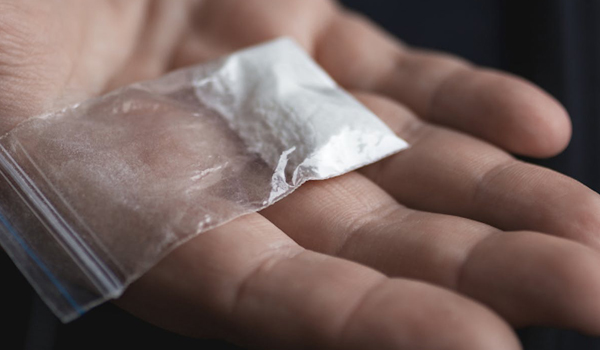Dangerous street drug monkey dust could be made Class A substance
An independent review has been commissioned by the Government into whether monkey dust should be reclassified as a Class A drug.
Currently a Class B substance, the dangerous street drug has been linked to acts of violence and other and criminality – particularly in Stoke-on-Trent and Staffordshire.
There have also been concerns about the impact of synthetic cathinones on people’s heath, with reported effects including hallucinations, psychosis and involuntary body movements.
Emergency services have described the use of the drug as “an epidemic”, taking up a huge amount of time for police and paramedics.
When police officers respond to an incident involving monkey dust, they find users are extremely paranoid, which causes them to be violent and agitated.
Monkey dust is a street term commonly used for 3’,4’-Methylenedioxy-α-pyrrolidinohexiophenone or MDPHP, a type of synthetic cathinone.
The Policing Minister has asked the Advisory Council on the Misuse of Drugs (ACMD) to consider whether synthetic cathinones, including monkey dust, should be made Class A drugs to “keep communities safe”, meaning criminals caught suppling this drug will face a life sentence.
Stoke-on-Trent MP Jack Brereton has campaigned to have monkey dust reclassified as a Class A drug, which he says would provide both the police and judiciary with further legal powers to stop the trade and use of the drug.
He stressed this would help lower crime and anti-social behaviour in areas such as Stoke-on-Trent, which are seeing an increased use of the drug and its effects.
Mr Brereton says monkey dust is “ruining lives and blighting our city”, adding: “The horrific drug is too cheaply and readily available in Stoke-in-Trent. It is hallucinogenic and extremely dangerous with reports of people jumping off buildings, eating through glass, lighting fires and even dropping dead as a result of taking it.
“It ruins lives, tears families apart, and leads to anti-social behaviour in our city.”
In his campaign he said there is an “urgent need” to reclassify monkey dust as a Class A drug to choke off its supply, drive up its cost and increase the consequences for gangs and dealers.
Chief Inspector Rob Hessell, operational lead on drugs at Staffordshire Police, said: “We are supportive of exploring the reclassification of synthetic cathinones, which includes monkey dust, from Class B to A, which will protect people from the harm of these drugs.
“The reclassification would make the drugs harder to access and introduce tougher penalties for possession.
“We have a dedicated operation, together with key local partners, aimed at disrupting the supply of monkey dust in Stoke-on-Trent and safeguarding those vulnerable to associated anti-social behaviour and criminality.
“It is hoped that by signposting users to support and treatment, through our work with partner agencies, we will be able to reduce the adverse impact the substance has on the local community.”
Staffordshire will receive funding from the Antisocial Behaviour Action Plan to begin an anti-social behaviour hotspot response pilot in coming weeks to help address concerns over synthetic cathinone use.
In 2023/24, the Drug Strategy will provide Stoke-on-Trent with £1,505,830 – and Staffordshire a further £693,479 – to tackle the use and harms of illegal drugs. Stoke-on-Trent will also receive £1,303,956 for targeted housing support interventions for people in drug and alcohol treatment.
Minister for Crime and Policing Chris Philp said: “These synthetic drugs ruin lives, families and neighbourhoods. Made in labs and pumped into our communities, our drug laws must keep pace with their evolution.
“We are tackling the supply and demand for illegal substances to reduce addiction and its effects, including driving down crime and antisocial behaviour.
“I look forward to receiving the ACMD’s advice on combatting synthetic cathinones in Staffordshire and across the UK.”
The review will also explore how other measures such as drug treatment and recovery can combat the harmful impacts of this substance.
Lisa Healings, chief executive of VAST – the local infrastructure organisation for the voluntary and community sector in Stoke-on-Trent – said: “It’s great news to hear that the classification of synthetic cathinones is being reviewed.
“Reclassification would ultimately make our communities safer for the people who live there and ensure that those affected by substance misuse are able to get the support they need.”
The ACMD will now undertake the review and return its advice to the Government.
Monkey dust is said to have originated in the US, where it was known as ‘bath salts’ and outlawed under President Barack Obama in 2012. It was legal in the UK until 2010, when it was reclassified as a Class B drug in legal changes designed to tackle the rise of mephedrone.


